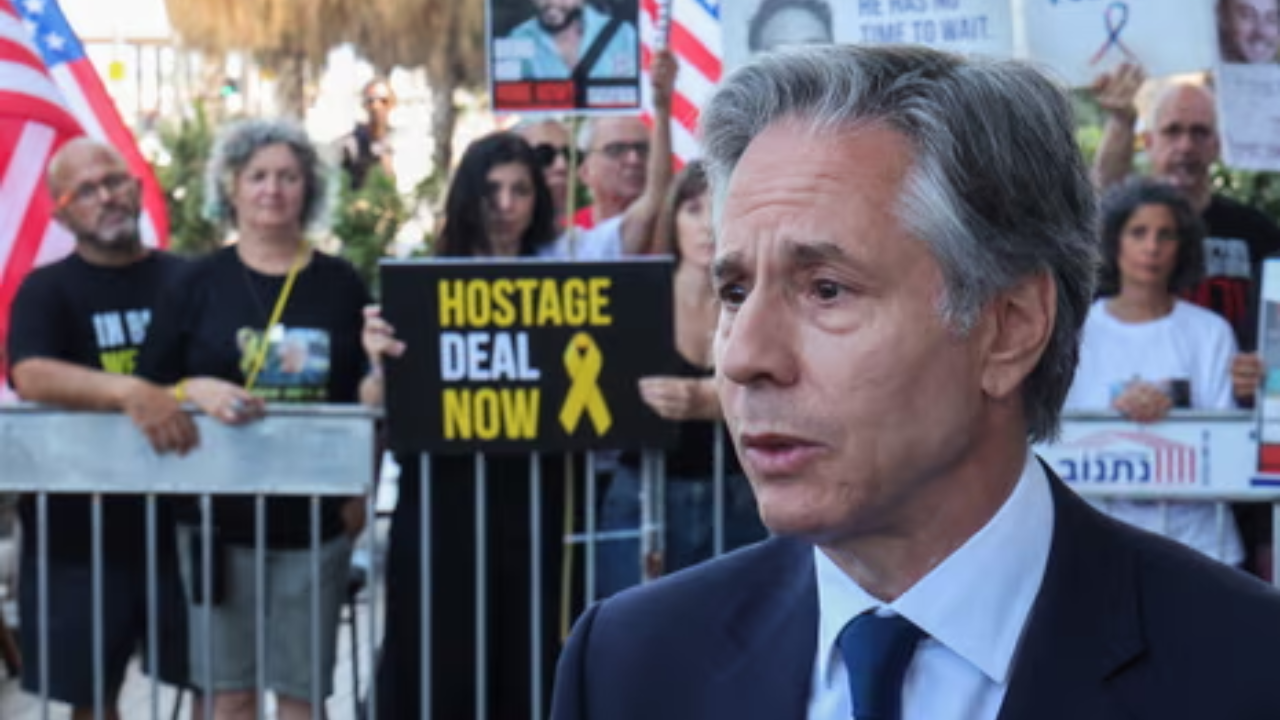The United States is currently assessing Hamas’s response to the latest proposal for a Gaza ceasefire plan and hostage release agreement. While Hamas has expressed a willingness to “deal positively” with the process, it emphasized that Israel must agree to a permanent ceasefire.
Israeli officials have not publicly commented on the response, but an anonymous Israeli source indicated that Hamas’s reply effectively amounted to a rejection. Meanwhile, U.S. Secretary of State Antony Blinken is en route to Qatar, which, along with the U.S. and Egypt, is mediating the negotiations to advance the plan.
On Tuesday, Blinken stated that Israeli Prime Minister Benjamin Netanyahu had “reaffirmed his commitment” to the proposal and placed responsibility on Hamas if no progress was made. However, Netanyahu has not publicly endorsed the plan, which President Joe Biden mentioned 12 days ago was initially offered by Israel.
A brief statement confirmed that Hamas had officially responded to the ceasefire plan, which has received broad international support and endorsement from the UN Security Council on Monday. Hamas reiterated its demand for a “complete halt of the ongoing aggression against Gaza” and the full withdrawal of Israeli forces from the territory.
Hamas official Izzat al-Rishq described their response as “responsible, serious and positive,” suggesting it opened a pathway to an agreement. The Israeli Prime Minister’s office has not released an official response. However, an anonymous Israeli official claimed that Hamas had “changed all of the main and most meaningful parameters” and rejected the hostage release proposal presented by President Biden.
The critical reaction from mediators, especially the U.S., is awaited as they evaluate the Hamas amendments. White House National Security Council spokesman John Kirby confirmed receipt of Hamas’s reply, which was delivered to Qatar and Egypt, and said it was under evaluation.
Qatar and Egypt have pledged to continue mediation efforts with the U.S. until an agreement is reached. The Israeli military campaign in Gaza, launched in response to a cross-border attack by Hamas on October 7, has led to significant casualties on both sides.
In a deal brokered in November, Hamas released 105 hostages in exchange for a week-long ceasefire and the release of 240 Palestinian prisoners. Israel claims 116 hostages remain in Hamas’s custody, with 41 presumed dead.
President Biden outlined a new proposal involving three phases. The first phase includes a six-week Gaza ceasefire plan during which Hamas would release some hostages in exchange for Israel releasing an unspecified number of Palestinian prisoners. The second phase would see the release of all remaining hostages and the withdrawal of Israeli forces from Gaza, pending further negotiations. The third phase involves the return of any deceased hostages’ remains and the initiation of a major reconstruction plan for Gaza.
Netanyahu has acknowledged that his war cabinet authorized the plan but has not unequivocally supported it publicly. Far-right members of his cabinet have threatened to collapse the coalition if the deal proceeds, viewing it as capitulation to Hamas.
The detailed Israeli proposal, reportedly more comprehensive than Biden’s summary, has not been made public and it remains unclear if it differs from what the President conveyed. The proposal was presented to Hamas days before Biden’s speech.










